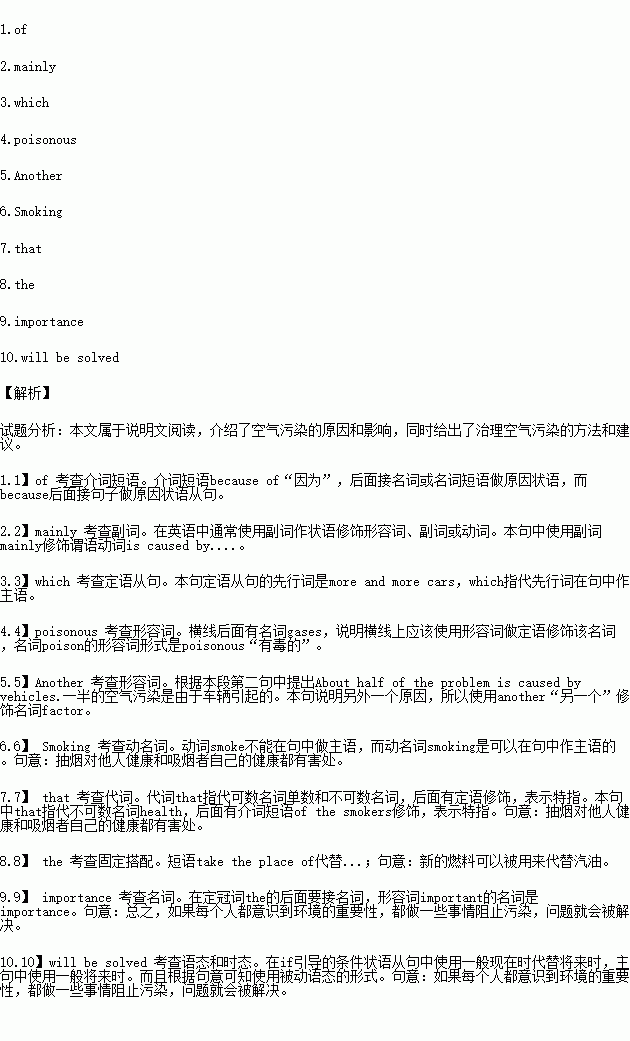题目内容
语法填空
阅读下面材料,在空白处填入适当的内容(不多于3个单词)或括号内单词的正确形式。
With the development of industry, air pollution is getting more and more serious. In Shanghai, many people suffer from different kinds of illnesses because 1. air pollution.
Air pollution is 2. (main) caused by the following reasons. About half of the problem is caused by vehicles. There are more and more cars and buses on the road, 3. give off 4. (poison) gases. 35% of air pollution is caused by factories. 5. factor is the smokers. 6. (smoke)does harm to others’ health as well as to 7. of the smokers. Besides, about 10% of air pollution is caused by other reasons.
We should take some measures to fight against pollution. New fuel can be used to take 8. place of gas. We can plant more trees, grass and flowers. All in all, if everybody realizes the 9. (important) of environment and does something to stop pollution, the problem 10. (solve).


 do with people's character
do with people's character